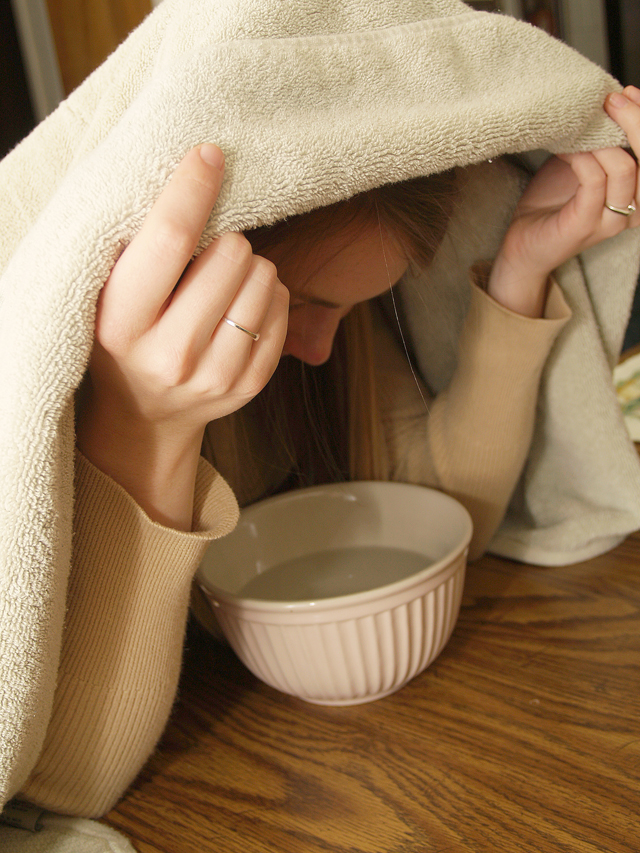Staying healthy during the long Logan winter
As Logan begins to decrease in temperature, the amount of cough drops, tissues and sick days will start to increase. As students begin to catch the typical winter cold, flu or cough, how do others protect themselves and stay healthy?
Jim Davis, director of the Student Wellness Center, said the best ways for students to stay healthy during the winter are to avoid those who are sick, practice good hygiene and be physically fit as the winter begins. He said there are also benefits to getting adequate amounts of sleep, staying hydrated and seeing a physician and taking medication when necessary.
Davis said it is important for students to steer clear of others who are sick and also stay away from others if they are sick.
“Most of what we see is infectious disease, so you can avoid illness by staying away from people who are sick or staying home when you yourself are sick,” he said.
Secondly, Davis said simply practicing good hygiene can keep students healthy.
“Cough in the corner or in your elbow and practice good hand washing,” Davis said. “If you’re carrying tissues, (dispose) of them properly.”
Davis also recommended that students use hand sanitizer.
Third, Davis said students should be in good health to start the winter. He said if students are physically fit it will help their immune systems better fight infections and disease.
“(Physical activity) stimulates your immune cells and keeps them healthy and active,” Davis said.
Davis also said physical activity is important because when a person exercises they take deeper breaths, which helps clean out their respiratory system. In addition, Davis said physical activity helps regulate appetite and can encourage a person to eat better.
Besides the three main tips, Davis also said sleep is important in preventing and fighting infections. He said the amount of sleep needed varies person to person.
“The key word is ‘enough’, so you’re not feeling fatigued throughout the day,” Davis said. “It is different for different people.”
Davis said the amount of sleep a person needs is determined by habit, physical workload and partly by genetics. Davis also suggested that naps during the day can definitely help students feel more rested and stay healthy.
Davis also said drinking plenty of fluids is essential to staying healthy.
“You have to stay hydrated for good health,” he said. “It is essential for kidney function to keep your system running properly. People with a cough or congestion that are dried out have a harder time getting better.”
Davis said a main reason for this is the mucus membranes in the back of a person’s throat and on the roof of their mouth need to stay hydrated. He said the membranes help protect against infection, but when they’re dried out they lose their protective nature. Davis also said it is important for people with a fever to stay hydrated.
If students think they have a bacterial illness that can be treated with antibiotics, Davis recommends they visit the Student Wellness Center. However, Davis said they are trying to reduce the amount of antibiotics they prescribe so the general public does not develop a resistance to them.
“Students should be aware that we are trying to reduce the use of antibiotics,” Davis said. “For a simple sore throat, etc., antibiotics are not warranted or helpful.”
However, Davis said he doesn’t want to discourage those who are in need of antibiotics.
“After a week (of a student being ill) then we probably ought to see them,” he said. “Students should come to the health center if they have a high fever, any difficulty breathing, pus on the tonsils or nausea/vomiting that is more than just brief,” Davis said.
If students are ill with a viral illness, not treatable with antibiotics, Davis recommended taking Tylenol or ibuprofen to reduce fever and aches, drinking plenty of water and taking a decongestant if congested. However, Davis said to remind students these medications do not treat or speed of the course of the illness.
“Treating symptoms is important for comfort, but a person is still contagious and they still have the virus,” he said.
Davis also said students need to remember there is no magic vitamin or pill for the common cold. He said vitamin C has never been proven to help prevent or end the common cold.
“Vitamin C has never been shown to be effective. High or moderate doses have not been helpful in the (common) cold or sore throats. Nor has zinc, nor has calcium or iron, etc.,” he said. “Researchers haven’t found a good nutritional preventative for the common cold.”
Davis also said flu shots can be helpful to work against type A flu. He said flu shots are offered at the Wellness Center for $22 and are given to students at cost for the serum.
“Flu shots are recommended for college students because of the compact living and large groups of people they are involved in,” he said.
Davis said students do need to remember flu shots are not “fool proof.” He said although they work against type A, they do not work against any new variations that may appear mid flu season.
–karlie.brand@aggiemail.usu.edu

